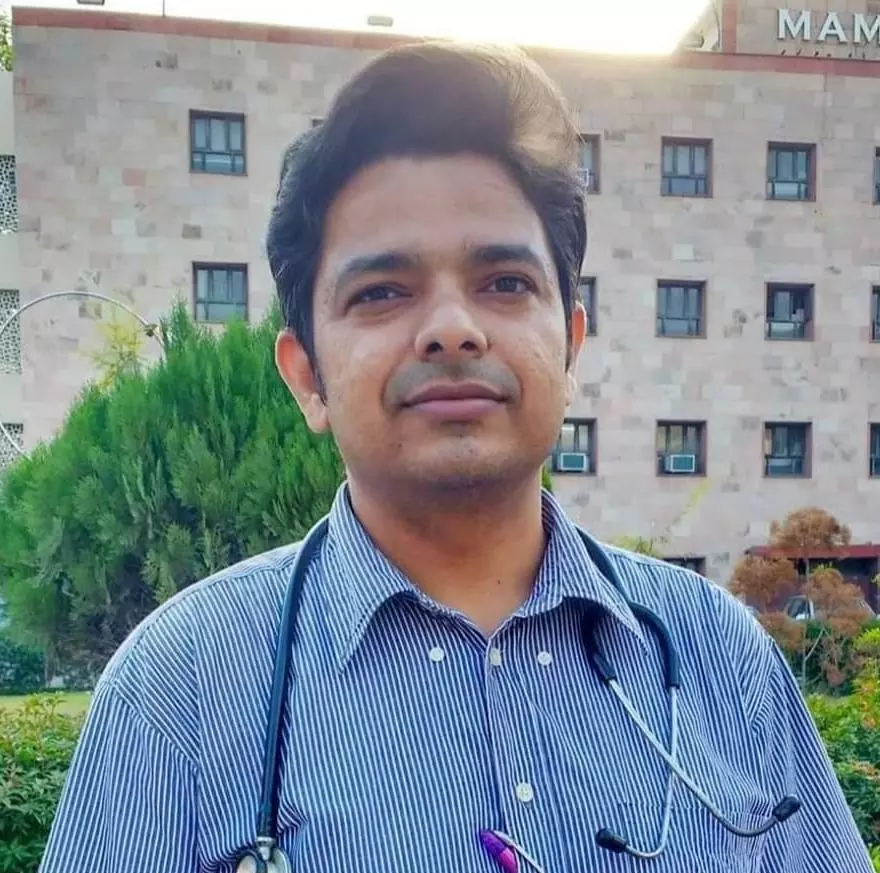- Home
- Medical news & Guidelines
- Anesthesiology
- Cardiology and CTVS
- Critical Care
- Dentistry
- Dermatology
- Diabetes and Endocrinology
- ENT
- Gastroenterology
- Medicine
- Nephrology
- Neurology
- Obstretics-Gynaecology
- Oncology
- Ophthalmology
- Orthopaedics
- Pediatrics-Neonatology
- Psychiatry
- Pulmonology
- Radiology
- Surgery
- Urology
- Laboratory Medicine
- Diet
- Nursing
- Paramedical
- Physiotherapy
- Health news
- Fact Check
- Bone Health Fact Check
- Brain Health Fact Check
- Cancer Related Fact Check
- Child Care Fact Check
- Dental and oral health fact check
- Diabetes and metabolic health fact check
- Diet and Nutrition Fact Check
- Eye and ENT Care Fact Check
- Fitness fact check
- Gut health fact check
- Heart health fact check
- Kidney health fact check
- Medical education fact check
- Men's health fact check
- Respiratory fact check
- Skin and hair care fact check
- Vaccine and Immunization fact check
- Women's health fact check
- AYUSH
- State News
- Andaman and Nicobar Islands
- Andhra Pradesh
- Arunachal Pradesh
- Assam
- Bihar
- Chandigarh
- Chattisgarh
- Dadra and Nagar Haveli
- Daman and Diu
- Delhi
- Goa
- Gujarat
- Haryana
- Himachal Pradesh
- Jammu & Kashmir
- Jharkhand
- Karnataka
- Kerala
- Ladakh
- Lakshadweep
- Madhya Pradesh
- Maharashtra
- Manipur
- Meghalaya
- Mizoram
- Nagaland
- Odisha
- Puducherry
- Punjab
- Rajasthan
- Sikkim
- Tamil Nadu
- Telangana
- Tripura
- Uttar Pradesh
- Uttrakhand
- West Bengal
- Medical Education
- Industry
Unexpected effects of common painkillers that may be explained by a new study - Video
Overview
Unexpected effects of common painkillers that may be explained by a new study Different Non-steroidal anti-inflammatory drugs (NSAIDs) can have unexpected and unexplained effects on many diseases, including heart disease and cancer. NSAIDs are widely used to treat pain and inflammation.
A new Yale-led study has uncovered a previously unknown process by which some NSAIDs affect the body. The finding may explain why similar NSAIDs produce a range of clinical outcomes and could inform how the drugs are used in the future.
The study was published on 23May 2022 in the journal Immunity.
Until now, the anti-inflammatory effects of NSAIDs were believed to arise solely through the inhibition of certain enzymes. But this mechanism does not account for many clinical outcomes that vary across the family of drugs. For example, some NSAIDs prevent heart disease while others cause it, some NSAIDs have been linked to decreased incidence of colorectal cancer, and various NSAIDs can have a wide range of effects on asthma.
Now, using cell cultures and mice, Yale researchers have uncovered a distinct mechanism by which a subset of NSAIDs reduce inflammation. And that mechanism may help explain some of these curious effects.
The research showed that only some NSAIDs-including indomethacin, which is used to treat arthritis and gout, and ibuprofen — also activate a protein called nuclear factor erythroid 2-related factor 2, or NRF2, which, among its many actions, triggers anti-inflammatory processes in the body.
Speakers
Dr B.P. RAHUL
MBBS (Bachelor of Medicine and Bachelor of Surgery)



